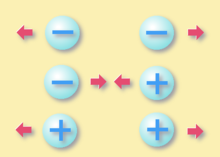 What is the theoretical framework? It is the basis of scientific and research work. It is the set of ideas, procedures and theories that were analyzed by a group or an author, serving as a methodology for a researcher to carry out their own activity. It is a harmonious circle towards the enrichment of knowledge, establishing the basic coordinates from which it is sought to validate a specific question.
What is the theoretical framework? It is the basis of scientific and research work. It is the set of ideas, procedures and theories that were analyzed by a group or an author, serving as a methodology for a researcher to carry out their own activity. It is a harmonious circle towards the enrichment of knowledge, establishing the basic coordinates from which it is sought to validate a specific question.
Every theoretical framework is usually divided into two pillars guiding: the tools and basic notions of the subject and context, and on the other hand, exposing the records obtained, identifying problems and thinking of proposals in this regard, validating information or generating new knowledge.
Also known as a referential framework, it can be said that such a name is due to the fact that one searches in the pre-existing national or international bibliographic references of the theory on which the research is developed.
The theoretical framework considers some fundamental questions: what is being investigated and for what. Basically, its objective is to relate in an analytical way the hypotheses raised about the same problem in the different theoretical works, in such a way to visualize all the variables that validate it or not.
Where does the origin of the postulate refer?
Etymologically, frame is referenced in Latin margo, understood as a delimiter, marker; for its theoretical part it is distinguished in the Greek theorikos, understanding ideas and study. Highlight that theory, from the Greek theoria, leads us to the deepest thoughts and to observe our surroundings.
Importance to build the path to study to solve problems
Examples of the importance of these works for the community as a whole, can be seen in the fight against diseases, advances against cancer, Alzheimer's, AIDS, and countless specific diseases, it is possible from experiences, the analysis of the results, and the identification of errors and successes to continue forward.
Without being limited to the area of health, it is a postulate that is present in all areas, trying to explain from small social and economic issues to the Big Bang and the formation and beginning of life.
The role of the theoretical framework in research
In simple words we could express that all research begins as a theory and all theory is developed on the basis of an idea. This being the case, we can affirm that without ideas that explain the problems around us, we would not have evolved. It is not always easy to validate a theory, but it is appreciated that the investigative process towards the results generates new knowledge.

How to develop a theoretical framework for a research work?
Let's imagine that we find ourselves in the circumstance of carrying out a research project. In the first place, we must know what has been published previously on the matter in question. On the other hand, you need to be familiar with the specific terminology. Finally, it is necessary for the researcher to frame his activity within a general scientific paradigm or model. From these premises we could build a general theoretical framework with the following elements:
- Description of the problem to be investigated.
- Adoption of a theoretical perspective to explain what, how, when and why a phenomenon occurs through a detailed review of the literature.
- Establishment of general and specific objectives.
- Choice of a methodology (each scientific activity requires a specific method, since an archaeological investigation is not the same as a biological one).
General considerations by way of conclusion
The concept of theoretical framework in research is closely related to the idea of methodology, seeking to integrate theory and practice in order to consolidate the knowledge that guides the search for answers.

Some students of the concept consider that in a theoretical framework different levels of abstraction are produced that go from the general to the particular (the scientific paradigm that serves as a model, the general theory of the subject to be treated, the different substantive theories, the theoretical propositions and , finally, the empirical regularities).
For this reason, it is extremely important to look for similar works with the one that is being developed, to be able to compare results, expand the information, or even to avoid falling into the errors that someone has already evidenced and recorded.
Photos: iStock - Photofixstudio / Poba









